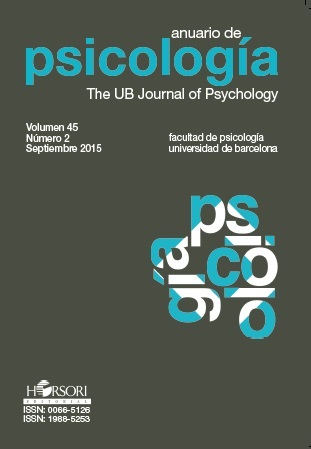Psychometric properties of Children’s Friendship Quality Scale in Spanish
Keywords:
Friendship, peer, childhood, scales, psychometric propertiesAbstract
The quality of the friendship bonds in childhood is an important factor in the psychosocial development of individuals. A key aspect in this respect is the development and adaptation of instruments with well-known psychometric properties. To this end, the Bukowski, Hoza and Boivin Children`s Friendship Quality Scale Version 4.1 was applied to a sample of 509 children of both gender between 10 to 12 years (mean age = 10.65) attending primary school in the city of Parana, Argentina. A confirmatory factor analysis using AMOS 16.0 program was conducted to test the six-factor original structure postulated by the authors of the questionnaire. Confirmatory factor analysis indicated an adequate fit (CFI = .90 and RMSEA = .044) for the proposed model. Cronbach Alpha coefficients ranged between .63 and .83. The subscales correlated significantly between r -.206 to .864. An indicator of its validity was that the different scales significantly correlated with being victimized and victimize others: r = .219 for conflict and being victimized, r = -.215 for fellowship and being victimized, r = .336 for bullying and conflict and r = -.269 to bullying and help.Downloads
Published
2015-09-01
Issue
Section
Articles
License
The authors who publish in this journal agree to the following terms:
Authors transfer to the publisher all copyright for the full term of protection and for all the world.
The authors can post a copy of their articles in accordance with the policy of free access to the journal.


